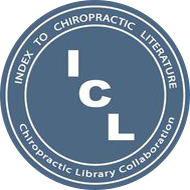Objective: This study aimed to establish if chiropractic care can improve oculomotor and cognitive symptoms in individuals with persistent postconcussion syndrome (PPCS).
Methods: A single-blind, randomized controlled intervention study recorded baseline computerized eye-tracker assessment (CEA) outcomes in 40 young adults with PPCS following mild traumatic brain injury. Participants were randomly allocated to either a chiropractic or age-matched active control intervention, and the change in CEA outcomes following intervention was compared between the chiropractic and control groups. A battery of CEAs including egocentric localization, fixation stability, pursuit, saccades, Stroop, and the vestibulo-ocular reflex, were used to assess oculomotor function, visual attention/processing, and selective attention.
Results: Relative to the control group, participants receiving the chiropractic intervention scored better in the Stroop test (P < .001), had improved gaze stability during both vestibulo-ocular reflex (P < .001) and fixation stability (P = .009), and a lower vertical error in egocentric localization (P < .001). However, performance was poorer in pursuits, where they had an increased tracking error (P < .001).
Conclusion: Chiropractic care in participants with PPCS significantly improved static and dynamic gaze stability, and performance in the Stroop test, compared with a control intervention. These results suggest that chiropractic care can offer a novel avenue for alleviating certain visual and cognitive symptoms in patients with PPCS. It also adds to the growing evidence that suggests that some longstanding PPCS visual symptoms may have a spinal or proprioceptive basis.
Author keywords: Postconcussion Syndrome; Chiropractic: Brain Concussion; Eye-Tracking Technology; Proprioception.
This abstract is reproduced with the permission of the publisher. Click on the above link for free full text.
|
